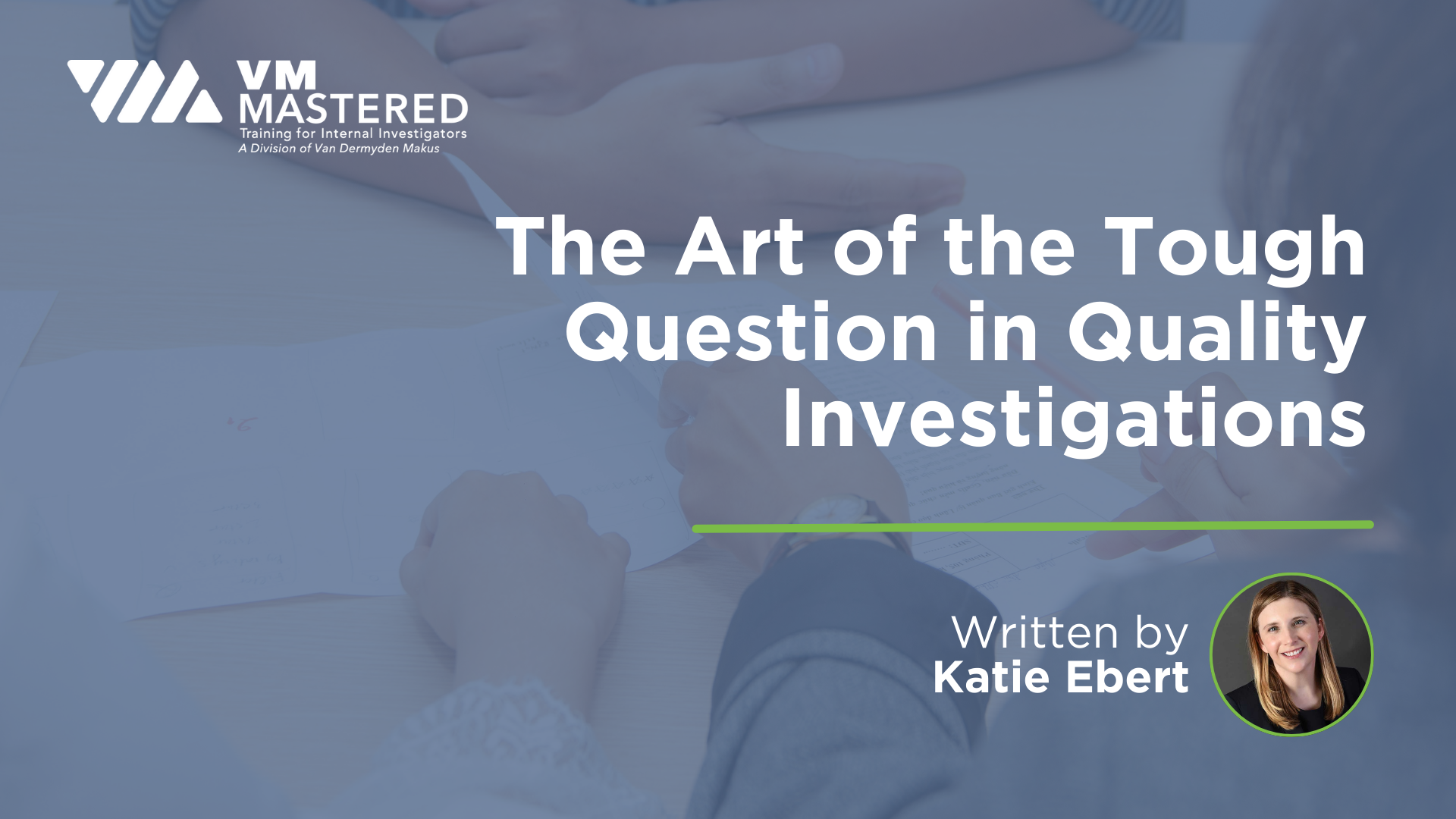You are investigating claims that Jacob harassed Lucy. You learn Lucy filed her complaint six months after the alleged conduct and three days after Jacob placed her on a performance improvement plan. Now you have to ask Lucy about the timing of her complaint.
Asking key, tough questions in an investigative interview is not always easy, but it is unavoidable in the world of workplace investigations. Tough questions afford critical witnesses the opportunity to clarify, correct, or challenge inconsistent witness statements, contradictory documentary evidence, and matters that cast doubt on their credibility. This is vital to quality investigations.
Tough questions, however, can appear judgmental. This can cause witnesses to shut down, react with anger, or question the investigator’s neutrality—all of which can undermine the rapport investigators work so hard to build. The key, therefore, is to thread the needle of asking tough questions in a manner that maintains an investigator’s neutrality and does not undermine witness rapport. But, how? What follows are some practical tips to accomplish this.
3 Ways to Successfully Ask Tough Questions
-
Use the “Funnel Method” and Ask the Tough Questions Last
First, start interviews with simple, broad, open-ended questions. This allows witnesses to provide their narrative openly, freely, and without interruption. This can be accomplished through questions such as, “Help me understand…” or “Tell me more about…”
Next, ask necessary follow up questions—who, what, where, when, and how—to clarify information not already provided in the witness’s narrative. Consider whether you can ask the tough questions last. Leaving the tough questions to the end of an interview allows any impact these questions may have on witness rapport to be mitigated.
-
Maintain Neutrality and Explain the Investigative Process
It is important to maintain neutrality and ensure witnesses understand the investigator’s role. This includes informing witnesses that part of the investigative process is to allow them an opportunity to respond to information gathered. Explain this is the witnesses’ opportunity to provide additional information, perspectives, or context they believe is important for the investigator to know.
Especially with follow-up interviews, it is helpful to reiterate that no conclusions or findings have been reached yet. Further explain that the questions asked are based on the perspectives and information gathered as part of the investigation. This is a way for the investigator to distance themselves from the perspectives that form the basis of the tough questions that will follow.
-
Create A Disconnect Between the Tough Question and the Investigator
Finally, tough questions should be posed in a way that does not imply judgement. In general, avoid “why” questions. Consider this: “Why did you wait for six months before you reported this conduct?” The “why” makes it sound accusatory, instead of curious. Instead, find ways to gather the same information in a manner that distances the investigator from the question itself. For example, begin questions with, “I have heard the perspective…” or “The document, on its face, may suggest …” Then ask the witness for their own perspective and any additional information. Keep the tone of the discussion conversational.
Ultimately, if a witness questions the investigators neutrality or the question itself, be prepared to address this in a non-defensive manner. This should be done by explaining the need to ensure the witness has an opportunity to respond to information and perspectives gathered, including information that could be unfavorable to them.
If you employ these techniques, you will have a better chance at threading the needle of maintaining rapport and asking the tough questions that are critical to the investigation.
Katie Ebert is a Senior Attorney Investigator with Van Dermyden Makus Law Corporation. Her practice focuses on conducting workplace and Title IX campus investigations.


